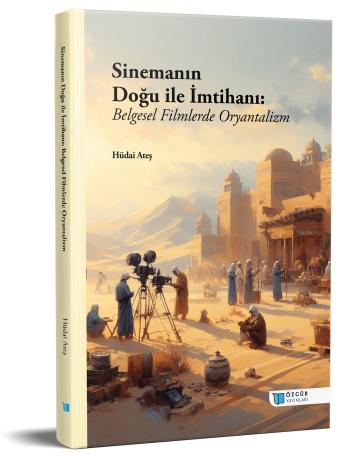
Cinema's Trial with the East: Orientalism in Documentary Films
Synopsis
East and West are like mirrors in which they carry their own cultural, historical and intellectual reflections. While the Eastern mirror is full of a complex history, thousands of years of civilizations, deep philosophical and religious teachings, the Western mirror is a reflection fed by the Ancient Greek and Roman civilizations and influenced by Christianity, Renaissance and Enlightenment periods. Orientalism functions as a mirror that shows us an image created by the West in the process of understanding and representing the East. This mirror reflects the West's own ideological, cultural and political approaches and creates certain images about the East. The Orientalist approach is characterized by the West's definition of the East as exotic, mysterious, primitive, and the seat of terror. Western researchers, writers, artists and intellectuals interpret the East using their own cultural, historical and philosophical frameworks, and these interpretations reflect not the objective reality of the real East, but an image shaped by the West's own prejudices and imaginations.
While documentary films also serve as mirrors reflecting reality, documentaries prepared from an orientalist perspective can present a distorted reflection of reality. In fact, documentary films are productions that aim to provide information to the audience by focusing on real events and real people. However, these films can also be influenced by the culture, ideology and prejudices of the country in which they are made. Documentary films made from an Orientalist perspective may tend to exoticize, barbarize, humiliate or primitivize Eastern societies. While such documentary films represent the people of the East in stereotypical and stereotypical images, they may not reflect the diversity, complexity and reality of real Eastern societies. In order to marginalize the East through documentary films, only certain aspects of the traditions, rituals, beliefs or lifestyles of these societies can be highlighted, and these aspects are often selected to attract Western audiences and presented to audiences at documentary film festivals.
While documentary film festivals are platforms where documentary productions from different cultures, societies and perspectives are exhibited and promoted, these festivals can influence the representations and narratives of Eastern societies and shape the image of the East as perceived by a particular audience. This research is an analysis of the films that won the best documentary film award in the feature-length category of the International Documentary Film Festival Amsterdam (IDFA), one of the most established documentary film festivals in the world. Considering documentary films as mirrors reflecting the realities of societies, it is worth examining how Eastern societies are reflected in the films that won this prestigious award. Within the scope of the research, it is tried to determine how orientalist elements are placed between the natural depictions of Eastern societies in these documentary films.

